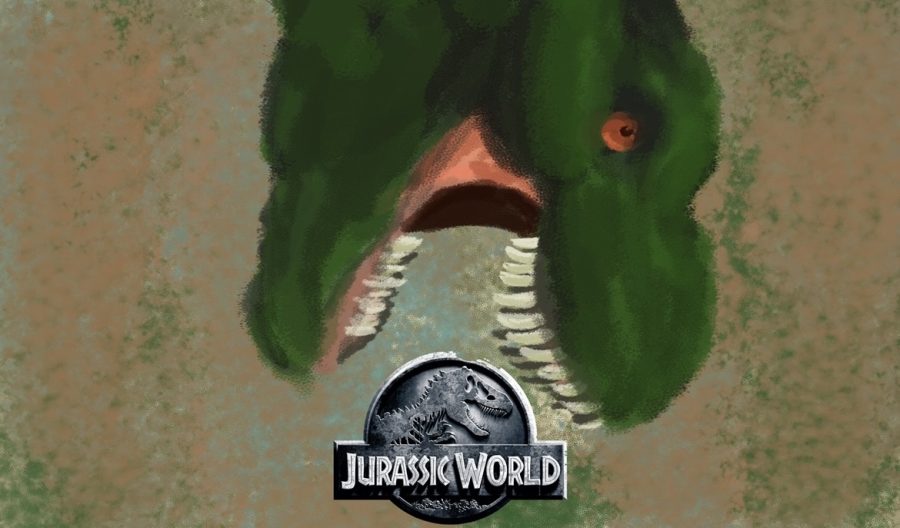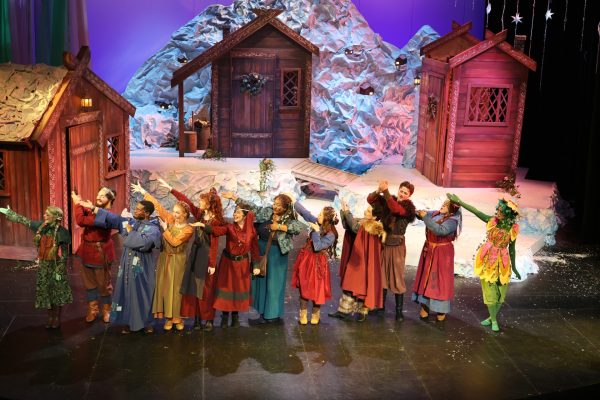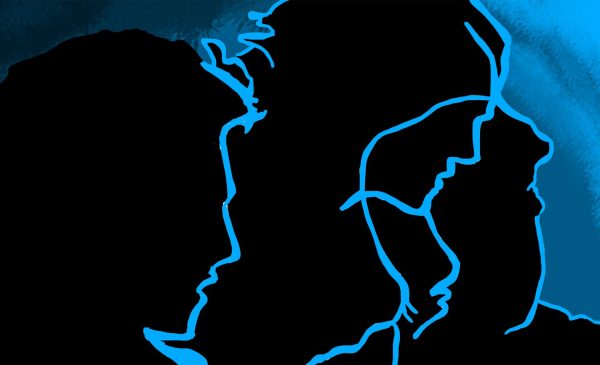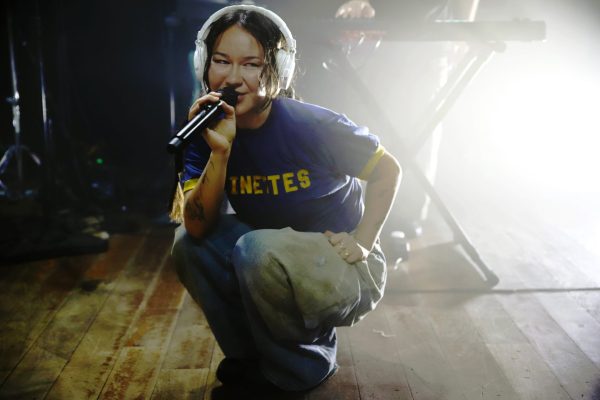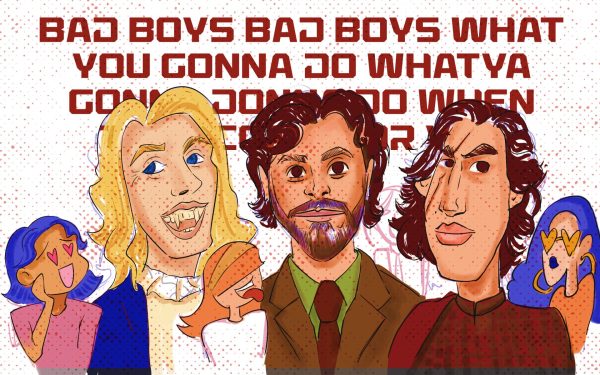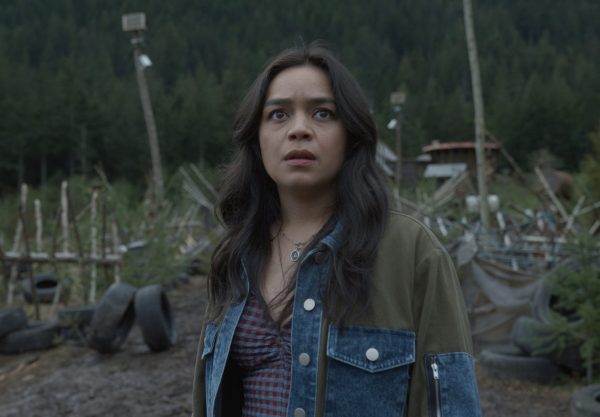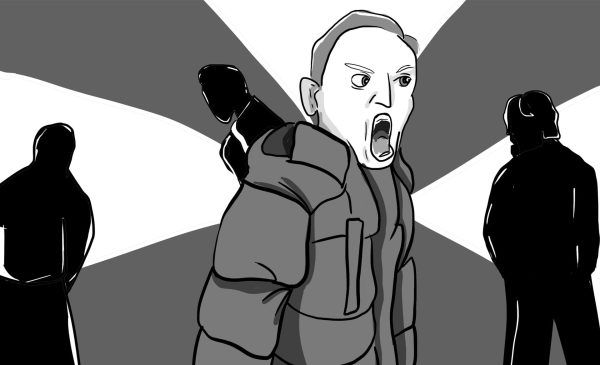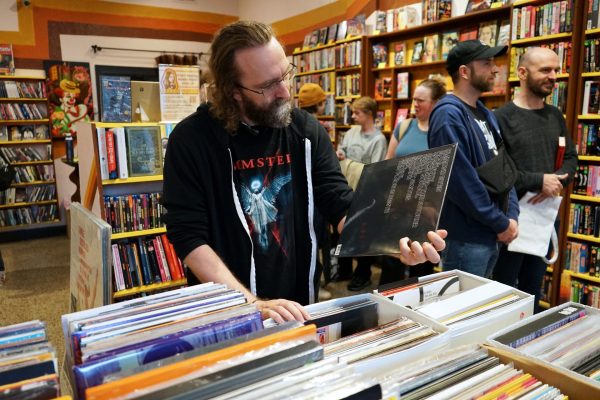Jurassic World Dominion: The sequel that should have remained extinct
Alicia Goluszka for The DePaulia
Sequel trilogies of popular movie franchises remain a gamble, especially when they attempt to continue and expand on characters and plotlines that have already spent their time in the spotlight. Unfortunately, the “Jurassic World” trilogy acts as only proof of this misplaced wager.
Set 22 years after the cult classic “Jurassic Park,” the “Jurassic World” trilogy follows a similar narrative of bringing back dinosaurs and the bloody chaos that naturally coincides. Regretfully, it is this recycled structure that renders the sequels useless in their entirety.
“Jurrasic World Dominion,” directed by Colin Trevorrow, held the burden of concluding the franchise’s presence on the big screen, picking up where its 2018 predecessor “Jurassic World: Fallen Kingdom” left off. With dinosaurs now freely roaming all corners of the earth thanks to the usurping collapse of the refurbished theme park, the duty of saving the world once more falls to stars Chris Pratt and Bryce Dallas Howard.
Luckily, they are not alone. The original trio composed of Jeff Goldblum, Laura Dern and Sam Neill return to their iconic roles in a similar fashion of preventing a Mesozoic era apocalypse from destroying humanity.
The first red flag that arose during my viewing was the introduction of Biosyn, a corporation residing in the mountains of Italy, committed to protecting a handful of the more dangerous dinosaurs. It comes as no surprise when the corporation’s leader, Lewis Dodson, played by Campbell Scott, turns out to be plotting mankind’s downfall through a genetically modified crop of prehistoric locus.
Yet, it was here I found myself questioning the purpose of this overused trope. Biosyn’s introduction so late into the series felt like a throwaway combined with the lazy, flat writing of Dodson character made the film feel unloved, as if Trevorrow had given up before he even started.
While I acknowledge that there are only so many routes a film centered around reinvented apex predators can take, the lack of creativity forces me to question the process of greenlighting these films to begin with.
Next comes the unnecessarily confusing life of Maisie Lockwood, Benjamin Lockwood’s granddaughter who helped create the original Jurassic Park alongside the iconic John Hammond. Beyond her un-memorability from “Jurassic World: Fallen Kingdom,” Lockwood, portrayed by Isabella Sermon, offers little besides a connection to the deceased scientist Charlotte Lockwood, who, despite being introduced in “Jurassic World: Fallen Kingdom,” is designed to fool viewers into believing she was in the original films.
Throughout most of “Jurassic World: Dominion,” I found myself unsatisfied at every turn. On top of the overall lack of dinosaurs, even the so-called apex predator Giganotosaurus was a letdown. You can only have the protagonists escape believably from the largest dinosaur in existence so many times.
Another aspect that left a bitter taste in my mouth was Pratt himself. While his acting was bland and wooden throughout the majority of the film, my issue inhabits his continual success and presence within Hollywood despite his string of questionable behavior.
Despite many A-listers in Hollywood committing worse offenses and remaining more successful than Pratt, I believe it is crucial to recognize this behavior and hold celebrities accountable for their actions.
As for my final thoughts regarding “Jurassic World: Dominion,” I believe Trevorrow bit off more than he could chew, resulting in an overcrowded, underthought conclusion that subdued the original magic of monsters among us with half hearted, loosely tied ends.
I rate “Jurassic World: Dominion” 1 out of 5 stars.


